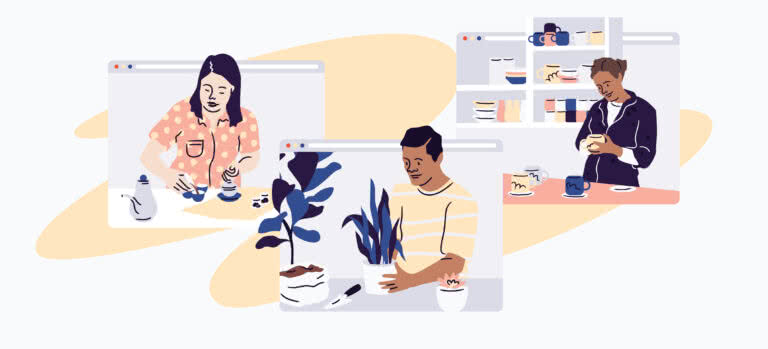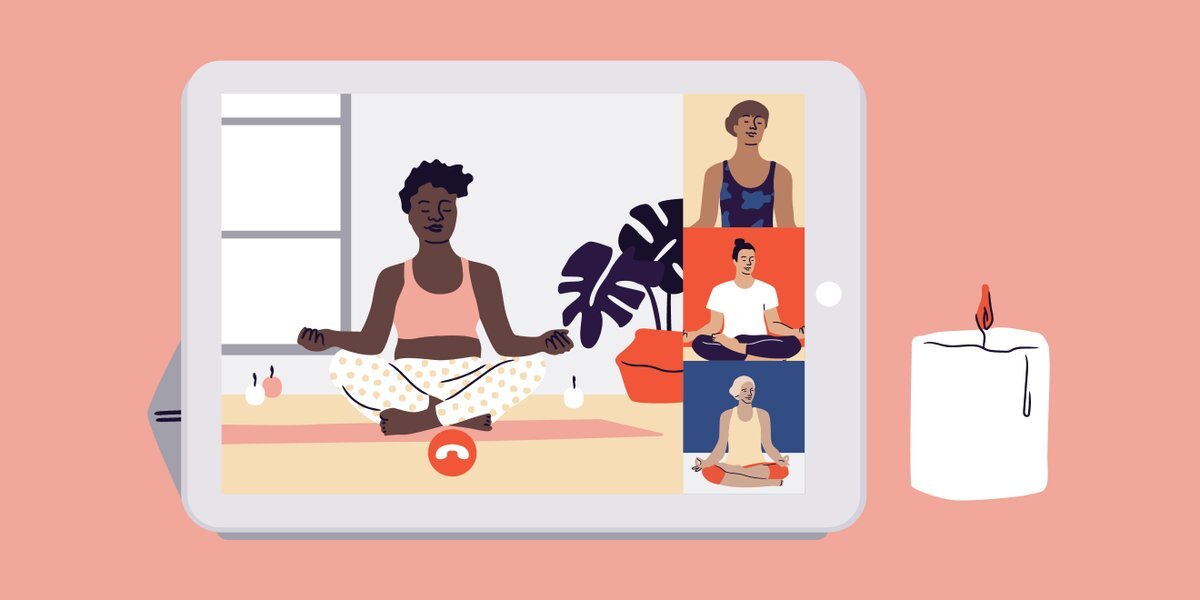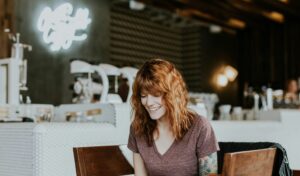When can virtual shopping feel authentic? When there’s more to it than just shopping.
Renegade Craft knows this. For the last 17 years, they’ve orchestrated art- and design-focused events across the country, in cities like San Francisco, Denver, Chicago, and Brooklyn. But now that COVID-19 has quashed any opportunity to do things in-person, they’re ditching the usual business model, swapping makers’ booths for makers’ portals. That’s right: Renegade Craft Fair is going online.
On April 24 and April 25, Renegade will host its first-ever Virtual Fair, giving art-lovers everywhere the chance to tune in and interact with more than 100 makers as they livestream and do demonstrations from their workshops, studios, and homes.
“We want it to be as much of a representation of the Fair as possible, while at the same time creating a unique, virtual experience that isn’t something you’d find at another event online,” says Mat Daly, Renegade Craft’s chief development officer.
Throughout the two-day online event, you can travel the world to see laser cut acrylic earrings in San Francisco, tea leaf tastings in Los Angeles, or sand casted tableware in Paris. There’s so much to check out that if you’re inclined to bounce from one maker’s stream to the next, don’t feel bad. That sort of behavior — much like booth-hopping at a physical craft fair — is not just encouraged, but expected.
“It’s like a choose-your-own-adventure experience with everyone going live at the same time,” Daly says. “You can watch someone throw a pot, take a studio tour through someone’s space, and all the while you can shop and support the different artists who are there.”
Instead of strolling down aisles lined with booths, attendees have the chance for a more intimate and educational interaction with the artisans. Ever wondered how high-top combat boots are made? What marbling ceramic looks like? Or how loud it can get inside of a woodworking shop? Here’s your chance.
“Compared to a traditional craft fair, where you walk into someone’s booth and they’ve transformed their work into a display, this will be a little more of an intimate setting,” Daly says. “You’re actually going into their space and their studio.”
It’s a win-win situation for both the makers and attendees. Because the makers don’t have to travel, rent hotel rooms, or set-up their stands, you’ll see a more diverse array of them at the virtual fair, streaming from all over the U.S., as well as from a handful of international spots. What’s more, because the event is online, anyone, anywhere can attend. You don’t even have to put on pants.
“In these scary, dire times in the event business, this is what’s keeping us going. Our team is on fire with excitement for putting this on,” Daly says. “And the kind of response we’ve been getting so far from the participants and sponsors we’ve talked to has been very encouraging.”
The possibility of doing more Virtual Fairs is almost a guarantee, he adds, noting Renegade Craft’s hope of turning it into a regular weekend event. Each one would be curated with an entirely new roster of makers and artists, ideally from all over the world thanks to the lack of limitations that online events afford. They could be a chance to discover obscure, rural artists in far-off places or an opportunity to see traditional, regional artforms made on-the-spot in their place of origin.
“Contemporary design and contemporary craft exists everywhere,” Daly notes. “If we can be the place where you go to find that, that could really be something.”
To get you ready for this weekend’s virtual event, here are the stories behind three vendors you won’t want to miss — and the unique ways in which they’re adapting to virtual exhibiting.
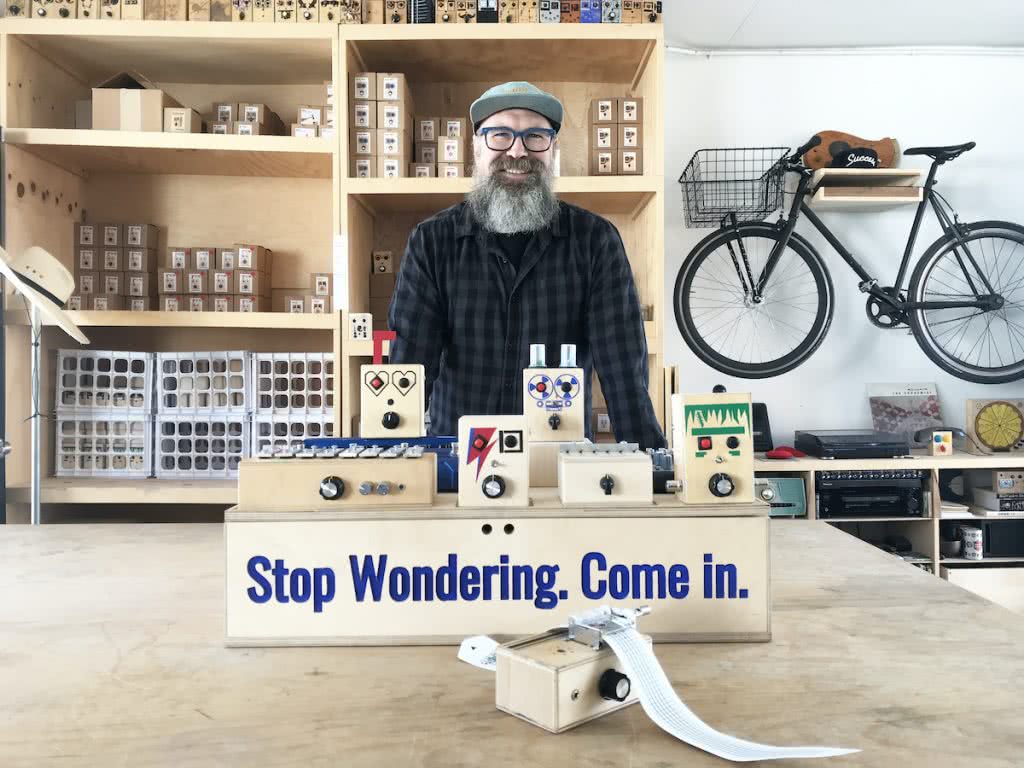
Richard Upchurch -BrandNewNoise
BrandNewNoise
Since 2010, Richard Upchurch has created unique musical contraptions and audio recorders through his company BrandNewNoise that record, playback, filter, loop, and otherwise morph sounds into awesome sonic journeys. Box-shaped and covered with buttons, levers, and knobs, the instruments look more like something you’d find on a spaceship than gadgets for making music. Once you get the hang of them, though, the bespoke products are incredibly easy to operate. Everyone from 4-year-olds to such indie rock bands as Wilco, Death Cab for Cutie, and the Flaming Lips have used them.
But it helps to see a demonstration first, which is something Upchurch learned early on when he started selling at Renegade Craft Fair events in Brooklyn, New York. “People would look, take a second glance, stop, and stare, but seemed pretty unsure about what BrandNewNoise was,” he says. “You don’t see a whole lot of similar work at a craft fair.”
For Renegade Craft Fair’s upcoming virtual event, Upchurch will stream from inside his workshop in Dallas, Texas, using his range of kooky and unusual instruments to record “nonsense sounds” before mixing them into mellifluous tunes. He also plans to do “a live build” showing how he makes the contraptions, and to play guessing games with songs that have been filtered to the point where they are almost unrecognizable.
If you want to purchase or get a more in-depth look at a particular instrument, BrandNewNoise’s online store has short videos for each product explaining how they work and what they sound like.
Because Upchurch isn’t the only one in his household with musical talents — his wife is a professional pianist and his teenage daughter is a choir singer who can “play whatever she picks up” — a family jam session is almost guaranteed to happen.
After all, it’s always better to show, not just tell.
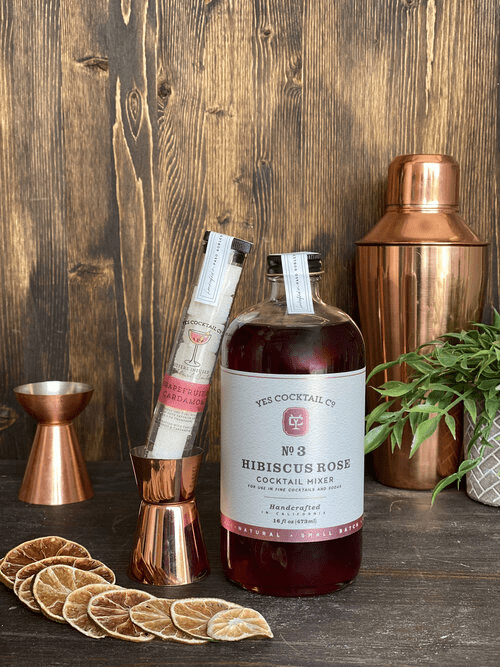
Yes Cocktail Co. by Butler
Yes Cocktail Co.
One positive of quarantine: You now have time to learn how to be your own bartender.
It’s one thing to know how to open a wine bottle, but making cocktails is a whole other skillset. With bitters, syrups, mixers, and garnishes, there are numerous tools and ingredients that go into making a singular drink. It requires skill, deft of hand, and the kind of creativity that’s more instinctive than taught.
“Mixology can be overwhelming,” says Lauren Butler, who runs Yes Cocktail Co., with her husband Brandon Alpert. “But even the most skilled bartender had to start somewhere.”
In fact, she says showing others “what they’re capable of creating” is exactly the kind of problem the duo knows how to solve.
For Renegade Craft Fair’s virtual event, they’ll be demonstrating how to craft classic cocktails — such as old fashioneds, margaritas, whiskey sours, and Manhattans — using Yes Cocktail Co. products, via a live stream from their Paso Robles, California, tasting room.
“It’s a bit like learning the five mother sauces to mastering French cooking. Once you learn the basic ratios of the classic cocktails, you’re well on your way to mastering mixology,” Butler explains. “You can start playing with the ratios, swapping out ingredients, adding a dash of bitters or an herb, and before you know it, you’ve created your own cocktail.”
Those left with a craving for booze after watching the duo’s livestream can visit Yes Cocktail Co.’s online shop to purchase any of the ingredients used in their demonstrations. Join their “Drink At Home Club” — to get quarterly shipments and discounts — and the proceeds from your sale will be donated to the James Beard Foundation Food and Beverage Relief Fund, which helps out small, independent restaurants hurting from the COVID-19 crisis.
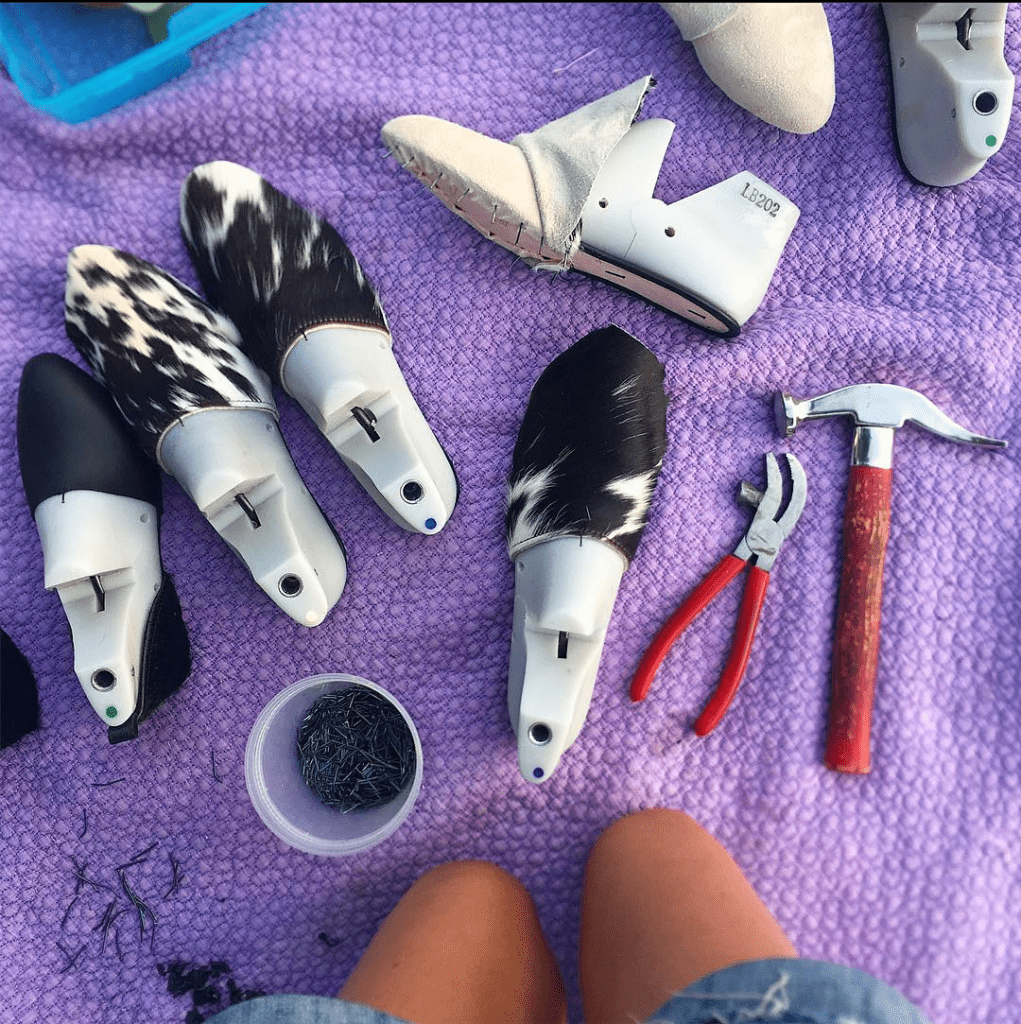
Alexandria Wills
Alexandria Wills
According to Alexandria Wills, a custom shoemaker in Chicago, Illinois: “Most people don’t know anything about shoemaking or the hard work that goes into it.” That gave Wills an idea for her appearance at Renegade Craft Fair’s virtual event.
From start to finish, she’ll craft a pair of shoes at her Logan Square studio the old-school way, using an assortment of hand tools and vintage cast-iron machinery from the mid-20th century.
Shoemaking by-hand “is kind of a lost art,” especially in the U.S., she says. Most footwear manufactured today is mass-produced in factories overseas. But Wills has been enthralled with the delicate and sometimes laborious process of shoemaking for more than a decade, originally picking up the trade through classes, online videos, shadowing of others, and classic trial and error.
In recent years, she’s started hosting shoemaking workshops at her studio, in addition to taking custom orders and selling already-made products — including bucket bags, canteen purses, and fanny packs — through her online shop. But having the opportunity to show virtual fair attendees the painstaking processes involved in making her cow hide combat boots and slip-on leather mules is an entirely new opportunity.
Something that’s also new for Wills: face masks. Since mid-March, she’s been dedicating all of her time to sewing them. They’re for sale at her shop for $10, and she also donates them to frontline workers and anyone who can’t afford to buy one themselves.
Making face masks has kept Wills so busy she hasn’t had a chance to craft a new pair of shoes in over a month. Her Virtual Fair appearance will be a welcome return to her main trade, as well as a chance to show others how to make masks of their own, which she plans to do on Saturday.
“Never in a million years did I think I would be switching gears to making face masks instead of shoes because of a worldwide pandemic,” she says.
